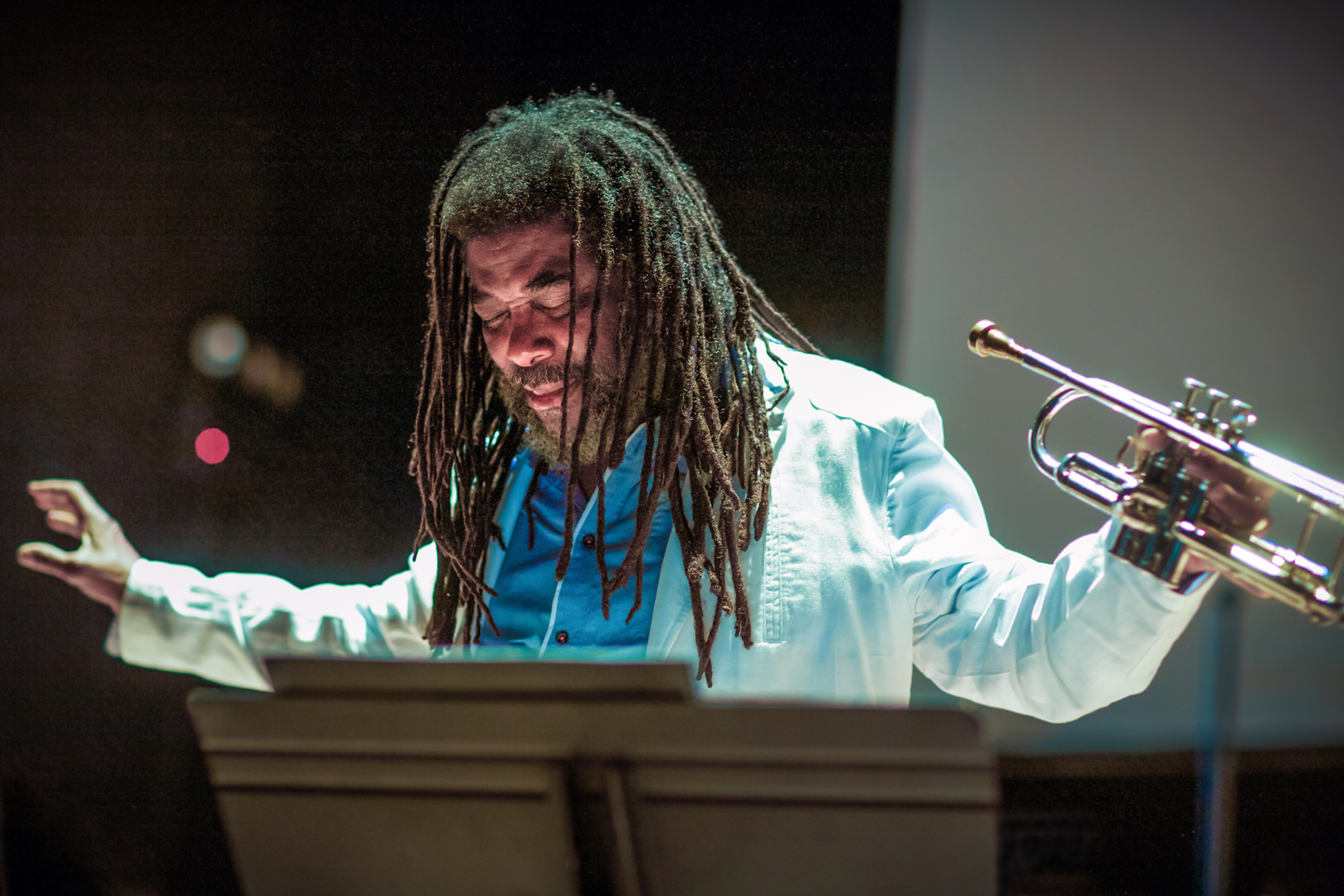Coming hot on the heels of the Thelonious Monk centenary, the new Wadada Leo Smith album Reflections and Meditations on Monk offers an interesting take on Monk’s distinctive music:
A solo trumpet album.

If it sounds like an outside idea, well, Smith is an outside kind of musician. Over the years he’s worked with musicians as far apart as guitarist Henry Kaiser, trumpeter Lester Bowie and pianist Vijay Iver. He’s actually got a history of solo records: Kulture Jazz for ECM about 25 years ago, and Red Sulfur Sky for John Zorn’s Tzadik label early in the 2000s.
His latest solo record is a tribute to Monk, where he mixes several Monk-written standards with a few original compositions. Sure, it’s a sort of challenging record, but the best of Monk’s solo piano ones are too. Which makes it a fitting tribute.
Throughout Reflections and Meditations on Monk Smith’s playing is unadorned: there’s no overdubbed second voice or digital gimmicks.
On his version of “Ruby, My Dear,” for example, Smith stretches out for nearly 10 minutes, his playing at times reminiscent of Monk’s jittery rhythms, and when he breaks out the mute, the high, almost reedy tone sounds similar to Miles Davis. But, notes Smith in the album’s liner notes, Monk is the musician he feels closest to, not Davis.

“I did not play this music to prepare for a performance or to base a recording on it,” he writes, “I played it as a way of connecting with Monk’s ideas.”
And a close listen shows how he’s succeeded. “Ruby” connects immediately, as does “’Round Midnight.” At first, I missed the way Monk was able to hit a chord, but after a few minutes, Smith’s playing connected: the way he slows down lines on “Round Midnight” has an emotional edge, a fitting conclusion to the tribute.
It goes deeper than music for Smith:
“Another reason why I feel a real affinity to Monk,” he writes in the liners, “is that he was the only major jazz musician who was not, in his early years, working steadily.”
Smith sees a parallel to his own career, where he also took time to find his own voice, while providing advice and inspiration to others.
Perhaps it’s why Smith’s original tunes are so interesting. For example, “Adagio: Monkishness – A Cinematic Vision of Monk Playing Solo Piano” and “Adagio: Monk, the Composer in Sepia – A Second Vision” are two variations on the same theme. Both feature sharp playing, showing Smith as someone still packed with ideas, and the main difference comes in sound: one’s played with a mute, one isn’t. They’re a good example of how Smith approaches the same idea in different ways.
The other originals, each inspired by various images Smith has had of Monk, are also interesting: the visions of Monk dancing on “Monk and His Five Point Ring at the Five Spot Café” and the meeting of the minds on “Monk and Bud Powell at Shea Stadium – A Mystery” have Smith winding and twisting through ideas; at times, his phrasing is absolutely inspired by Monk, but ultimately, they’re completely him.
Over the decades, there’s been dozens and dozens of tributes to Monk.
After all, the guy is one of the biggest names in jazz, as easily known as Davis, Charlie Parker, or Louis Armstrong. And while his music is continually rewarding, tributes to him can be something of a mixed bag; Hal Willner once brought in a who’s-who of musicians for one and ended up with mixed results.
But by avoiding too much clutter and distractions, Wadada Leo Smith has created both a fitting tribute and a compelling listen. His solo playing drew me in and throughout the record, never came off as stale or boring. I suppose it’s maybe a little too avant-garde for some listeners, but anyone intrigued by the album’s concept will surely find something to enjoy here. I know I did.


